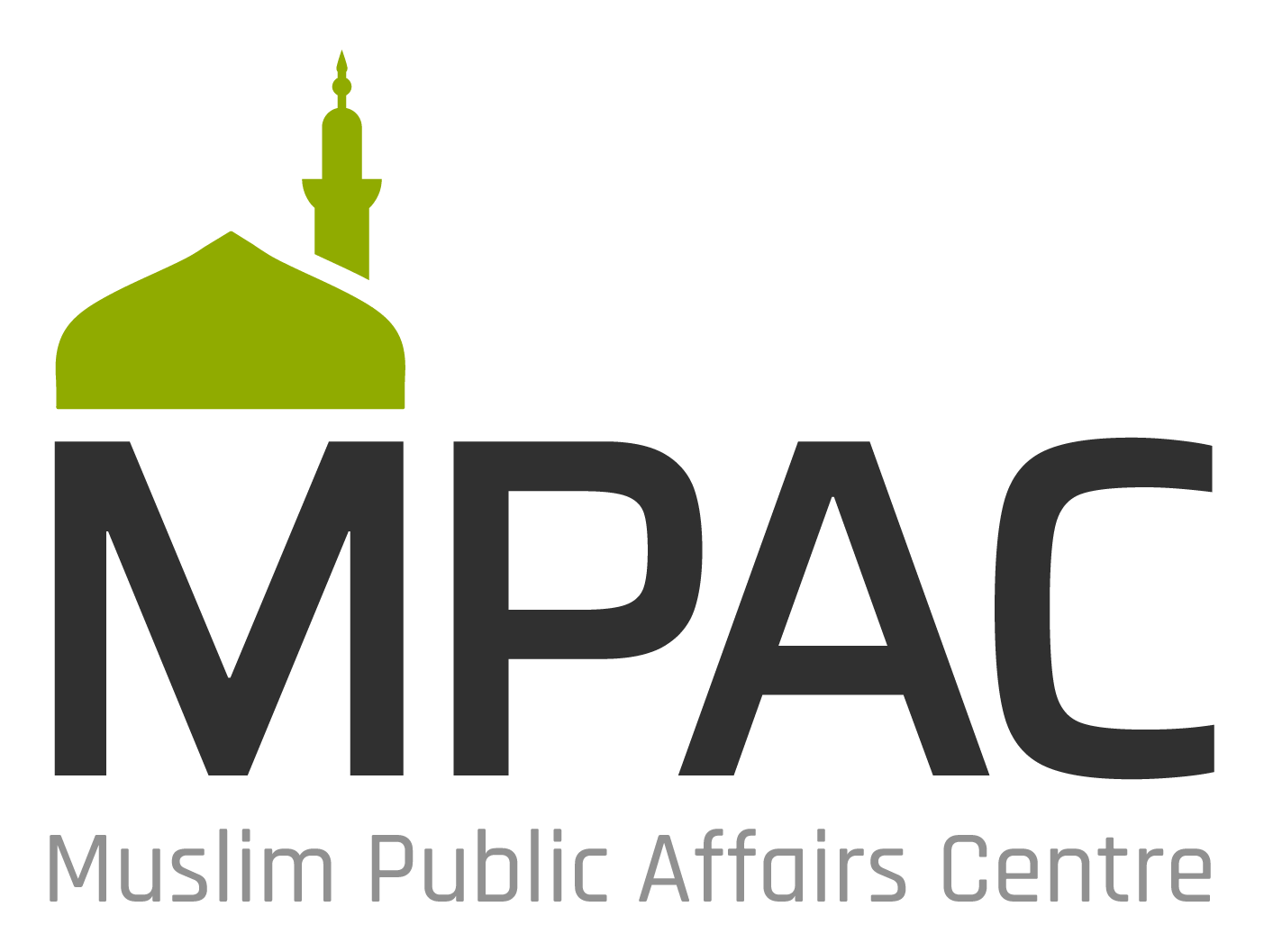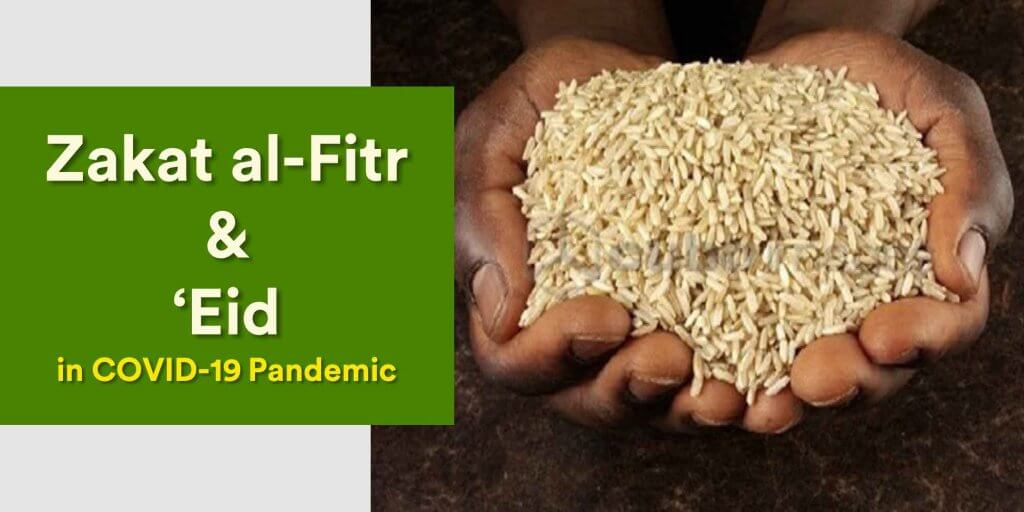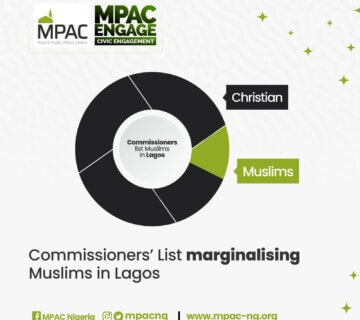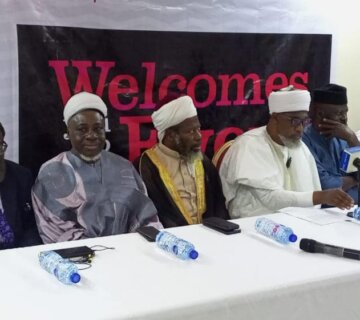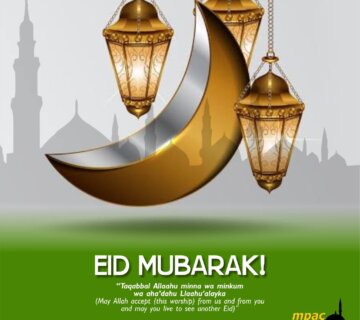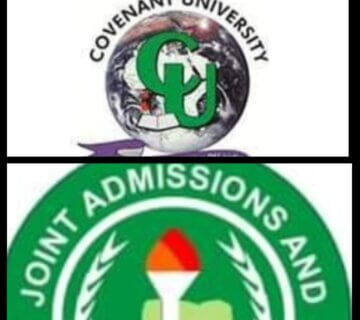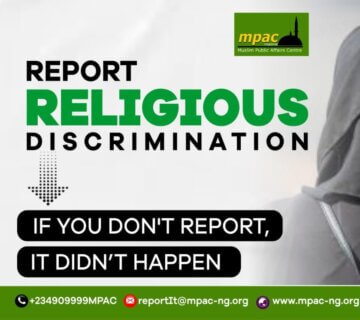Zakat Al-Fitr and Eid in COVID-19 Pandemic
Friday, 22 May 2020 | Ramadan 29, 1441 AH
Meaning
Zakat al-Fitr is often referred to as Sadaqah al-Fitr. The word Fitr means the same as Iftaar, breaking a fast and it comes from the same root word as Futoor which means breakfast. Thus, Islamically, Zakat al-Fitr is the name given to charity which is distributed at the end of the fast of Ramadan.
Classification
Sadaqah al-Fitr is a duty which is Waajib on every Muslim, whether male or female, minor or adult as long as he/she has the means to do so.
The proof that this form of charity is compulsory can be found in the Sunnah whereby Ibn `Umar reported that the Prophet (sallallaahu `alaihi wa sallam) made Zakatul-Fitr compulsory on every slave, freeman, male, female, young and old among the Muslims; one Saa` of dried dates or one Saa` of barley. [collected by Bukhaaree – Arabic/English, vol. 2, p. 339, no. 579]
The head of the household may pay the required amount for the other members. Abu Sa’eed al-Khudree said, “On behalf of our young and old, free men and slaves, we used to take out during Allaah’s Messenger’s (sallallaahu ‘alaihi wa sallam) lifetime one Saa` of grain, cheese or raisins”. [collected by Muslim – English transl. vol. 2, p. 469, no. 2155]
Significance
The significant role played by Zakaah in the circulation of wealth within the Islamic society is also played by the Sadaqah al-Fitr. However, in the case of Sadaqah al-Fitr, each individual is required to calculate how much charity is due from himself and his dependents and go into the community in order to find those who deserve such charity. Thus, Sadaqah al-Fitr plays a very important role in the development of the bonds of community. The rich are obliged to come in direct contact with the poor, and the poor are put in contact with the extremely poor. This contact between the various levels of society helps to build real bonds of brotherhood and love within the Islamic community and trains those who have, to be generous to those who do not have.
Purpose
The main purpose of Zakat ul-Fitr is to provide those who fasted with the means of making up for their errors during the month of fasting. Zakat ul-Fitr also provides the poor with a means with which they can celebrate the festival of breaking the fast (`Eid al-Fitr) along with the rest of the Muslims.
Ibn Abbaas reported, “The Prophet (sallallaahu ‘alaihi wa sallam) made Zakatul-Fitr compulsory so that those who fasted may be purified of their idle deeds and shameful talk (committed during Ramadaan) and so that the poor may be fed. Whoever gives it before Salaah will have it accepted as Zakaah, while he who gives it after the Salaah has given Sadaqah.” [collected by Abu Dawood – Eng. transl. vol. 2, p. 421, no. 1605 – rated Saheeh by Shaikh Naser Al-Albanee]
Hence, the goal of Sadaqah al-Fitr is the spiritual development of the Believers. By making them give up some of their wealth, the believers are taught the higher moral characteristics of generosity, compassion (sympathy for the unfortunate), gratitude to God and the righteousness. But, since Islaam does not neglect man’s material need, part of the goal of Zakaah al-Fitr is the economic well-being of the poorer members of society.
Conditions
Zakat ul-Fitr is only Waajib for a particular period of time. If one misses the time period without a good reason, he has sinned and can not make it up. This form of charity becomes obligatory from sunset on the last day of fasting and remains obligatory until the beginning of Salaah al-‘Eed’ (i.e. shortly after sunrise on the following day). However, it can be paid prior to the above mentioned period, as many of the Sahaabah (companions of the Prophet(sallallaahu ‘alaihi wa sallam) ) used to pay Sadaqah al-Fitr a couple of days before the `Eed.
Naafi reported that the Prophet’s companion Ibn `Umar used to give it to those who would accept it and the people used to give it a day or two before the `Eed. [collected by al-Bukhaaree – Arabic/English, Vol. 2, p.339, no. 579]
Ibn `Umar reported that the Prophet (sallallaahu ‘alaihi wa sallam) order that it (Zakaah al-Fitr) be given before people go to make the Salaah (al-‘Eid).
And Ibn `Abbaas reported that the Prophet (sallallaahu ‘alaihi wa sallam) said, “Whoever gives it before the Salaah will have it accepted as Zakaah, while he who gives it after the Salaah (will not, for it will only be considered as) ordinary charity. Therefore, one who forgets to pay this Zakaah al-Fitr on time should do so as soon as possible even though it will not be counted as Zakaah al-Fitr.
Rate
The amount of Zakaah is the same for everyone regardless of their different income brackets. The minimum amount is one Saa` (two handfuls) of food, grain or dried fruit for each member of the family. This calculation is based on Ibn `Umar’s report that the Prophet(sallallaahu ‘alaihi wa sallam) made Zakaah al-Fitr compulsory and payable by a Saa` of dried dates or a Saa` of barley.
The Sahaabee, Abu Sa`eed al-Khudree said, “In the Prophet’s time, we used to give it (Zakaah al-Fitr) as a Saa` of food, dried dates, barley, raisins or dried cheese”. [collected by al-Bukhaaree – Arabic/English vol. 2, p. 340, no. 582]
`Eid
Praying, Recreation, and Eating On The Day Of Eid:
These are permissible as long as they stay within the acceptable bounds of Islam. Anas said: When the Prophet, sallaallahu `alayhe wa sallam, came to Madinah, they had two days for amusement.
The Prophet, sallaallahu `alayhe wa sallam, has exchanged these days for two better days: the day of breaking the fast and the day of sacrifice. (Related by An-Nasa’i and Ibn Hibban)
Going To The Prayer Area:
The Prophet, sallaallahu `alayhe wa sallam, used to go to the prayer area by walking. Jaber narrated: “On the days of Eid, the Prophet, sallaallahu `alayhe wa sallam, would go to the prayer area by one route and come back by another route.” (Related by al-Bukhari)
But, this year’s (2020) Ramadan 1441AH and its festival are unusual in many respects due to the novel Coronavirus pandemic, COVID-19. Within the year, the world has seen close to 15% of the entire human race in lockdown. Family and extended family members who would normally look forward to dressing up for eid have now been advised to do something unthinkable only a few months ago: to celebrate alone and observe social distancing.
Under the resulting conditions, Muslims generally were unable to fully approximate all the collective rites of worship customary to this period, the most important being tarawih prayers, i’tikaf and of course the Eid prayers.
However, it was gratifying that despite the pressure, temptations and the spiritual sacrifices, Muslims mostly complied with the stay-at-home-to-stay-safe directive of the Federal and state governments. Similarly, it is most important that the directive of His Eminence, the Sultan of Sokoto and President-General of the Nigeria Supreme Council for Islamic Affairs (NSCIA), Alhaji (Dr.) Muhammadu Sa’ad Abubakar, CFR, mni, regarding the need for all Muslims in Nigeria to observe the eid prayer at home alone or with family members only, be strictly adhered to.
Preparation for Eid prayer:
It is preferred to make Ghusl (take a bath), wear one’s best clothes and, for men, to put on perfume.
Ibn Al-Qayyim said: “The Prophet, sallaallahu `alayhe wa sallam, used to wear his best clothes for the Eid prayers and he had clothes that he reserved for the two Eids and Jumu’ah.”
Congratulating Each Other:
It has been narrated that when the Prophet’s companions met each other on the Eid day, they would say to each other: “May Allah accept from us and from you.” (Related by Ahmad.)
Please maintain social distancing and stay safe while we encourage you to celebrate the eid at home.
*Ref: Adapted from various sources.*
—————–
As you’re here…
MPAC has one humble request from you…
Thousands of Nigerian Muslims rely on the services we provide at MPAC and thousands more from around the world visit our website for news every day. Due to the significant challenges we face in dealing with Muslim-related issues in a heightened Islamophobic environment, MPAC is constantly under financial strain to meet our financial needs.
To maintain editorial and financial independence, with no sectarian or political allegiance to any particular group or movement, MPAC relies only on donations from individuals like you.
It is easy to understand the importance of organisations that do the sort of work we do at MPAC in today’s climate. Please support us financially and please support us for as little as N1000 a month. It only takes a minute to make a one-off donation or to set up a standing order with your bank. Jazakallah khayran.
Our beloved Prophet Muhammad (peace be upon him) said: “The best deeds are those done regularly, even if they are small.” [Ibn Mājah]
